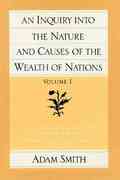Question
The rising costs of college education is a matter of ongoing debate in the US, both at the federal level and within some states. Some
The rising costs of college education is a matter of ongoing debate in the US, both at the federal level and within some states. Some states have been considering capping tuition rates, to make it more affordable for students from lower income families.
Suppose that the demand for four-year college degrees in the state of Erehwon is given by:
P = 500 - 1.7Q
and suppose the supply of four-year college degrees by universities in the state is given by:
P = 70 + 0.4Q
In both equations, P is the total tuition in thousands of dollars for a four-year degree, and Q is the number of students enrolling for degrees in thousands as well.
Suppose the government caps tuition for the four-year period at $120,000. Then which of the following are true? There may be more than one correct statement. Choose all that are correct.
Group of answer choices
Relative to what happens without the cap, college enrollment (i.e., number of degrees) will increase as many more students will be willing to attend college at the capped price.
Relative to what happens without the cap, college enrollment (i.e., number of degrees) will decline as colleges will cut back on the number of spots offered.
Because the cap is below the free market equilibrium price, the imposition of the cap will have no effect on college enrollment (i.e., number of degrees).
The deadweight loss from the cap would have been higher if the magnitude of the elasticity of supply (around the free market equilibrium price and quantity) was lower.
Step by Step Solution
There are 3 Steps involved in it
Step: 1

Get Instant Access to Expert-Tailored Solutions
See step-by-step solutions with expert insights and AI powered tools for academic success
Step: 2

Step: 3

Ace Your Homework with AI
Get the answers you need in no time with our AI-driven, step-by-step assistance
Get Started


